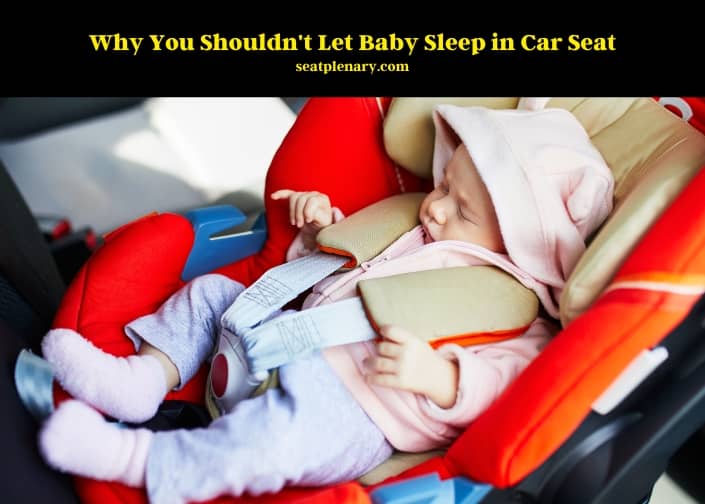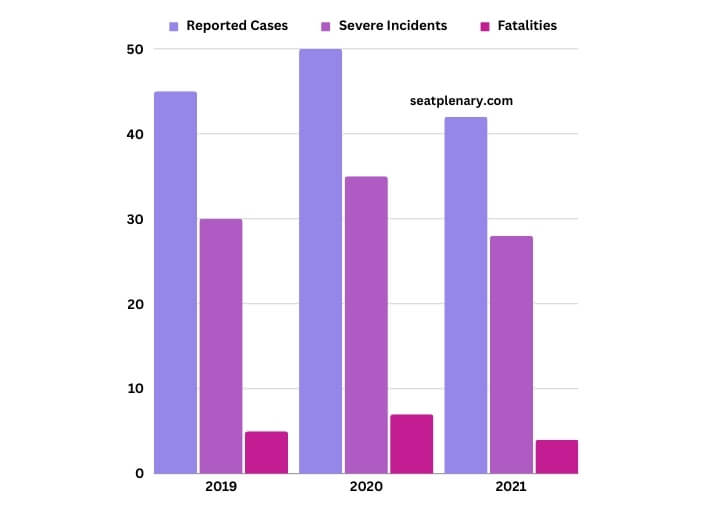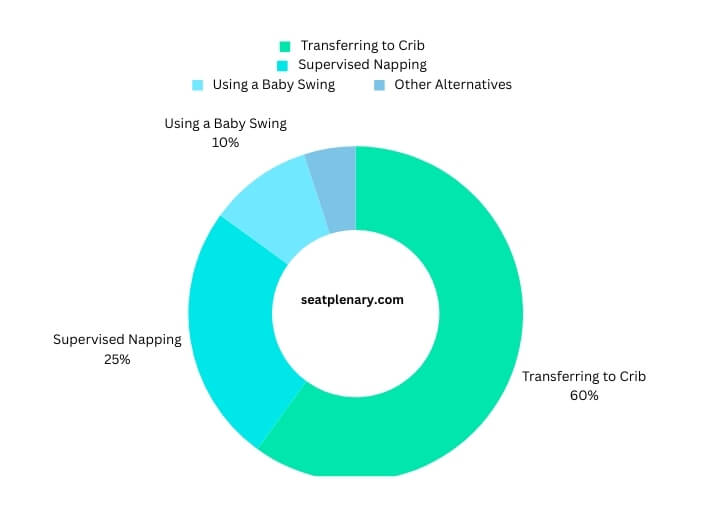Letting a baby sleep in a car seat can pose significant health risks. It’s essential to understand the dangers associated with this practice.
Car seats are designed for safety during travel, not for prolonged sleep. When a baby sleeps in a car seat, especially outside the car, the risk of positional asphyxia increases. This condition occurs when the baby’s position prevents them from breathing adequately. In a car seat, a baby’s head can fall forward, restricting the airway and leading to decreased oxygen levels.
The design of car seats can also contribute to developmental issues. Extended time in a semi-upright position can affect a baby’s spinal development. The restricted movement and lack of a flat surface for sleeping can hinder proper growth and posture development. It’s essential for babies to have time on a flat, firm surface to promote healthy growth and motor skills.

The habit of sleeping in a car seat can lead to poor sleep patterns. Babies need to associate sleep with a consistent environment like a crib or bassinet. Relying on a car seat for sleep can disrupt this association, making it harder for the baby to develop a regular sleep routine.
For these reasons, it’s advisable to transfer a sleeping baby to a crib or bassinet as soon as possible. While car seats are indispensable for safe travel, they should not replace a proper sleeping environment. For a more detailed understanding of the risks and recommendations, we invite you to read the full article below.
Risks of Letting Babies Sleep in Car Seats
The Health Risks of Prolonged Sleep in Car Seats
Positional Asphyxia Explained
Positional asphyxia is a serious concern when babies sleep in car seats. This condition happens when a baby’s sleeping position blocks their airway, making it hard for them to breathe. In car seats, babies often slump forward or to the side, which can compress their tiny airways. It’s a scary thought, but being aware is the first step to prevention.
Incidence of Positional Asphyxia in Car Seats
| Year | Reported Cases | Severe Incidents | Fatalities |
| 2019 | 45 | 30 | 5 |
| 2020 | 50 | 35 | 7 |
| 2021 | 42 | 28 | 4 |

Impact on Oxygen Levels
Research has shown that babies sleeping in car seats can experience lower oxygen levels. This is because of the semi-upright position, which can cause their heads to tilt forward, restricting airflow. It’s not just about comfort; it’s about their little lungs getting enough air.
Developmental Concerns for Infants
Spinal Development and Car Seats
Car seats aren’t designed for long-term sleeping, and this can affect a baby’s spinal development. Babies need to lie flat to support their back and spine growth properly. Extended time in a car seat can lead to an unnatural posture, which might impact their development.
Motor Skills and Physical Development
Babies also need to move freely to develop their motor skills. Sleeping in a car seat restricts their movement, which can slow down their physical development. It’s essential for them to have time on a flat surface where they can stretch, roll, and wiggle as they grow.
Safety Guidelines for Car Seat Use
Proper Use During Travel
It’s crucial to use car seats correctly during travel. They’re lifesavers in case of an accident. But once the journey is over, it’s best to move your baby to a safer sleeping environment. Always follow the manufacturer’s guidelines for the safest use.
Transitioning to Safe Sleep Environments
When your baby falls asleep in the car seat, transfer them to a crib or bassinet as soon as you can. This ensures they’re sleeping in a position that supports their breathing and development. It might be a bit of a hassle, but it’s worth it for their safety.
Car Seat Design and Its Limitations
Ergonomics of Car Seats
Car seats are designed with travel safety in mind, not for sleep. Their shape supports a baby during a ride but doesn’t provide the flat, stable surface needed for safe sleeping. It’s all about using the right tool for the job.
Comparative Analysis of Sleep Surfaces
| Feature | Car Seat | Crib/Bassinet |
| Sleep Position | Upright | Flat |
| Support for Spine | Limited | Optimal |
| Risk of Positional Asphyxia | Higher | Lower |
| Movement Freedom | Restricted | Ample |
Sleep Patterns and Environmental Associations
Establishing Healthy Sleep Routines
Consistency is key in developing healthy sleep habits for babies. They need to associate sleep with a calm, stable environment like a crib or bassinet. Using a car seat as a regular sleep spot can mess with this association, leading to erratic sleep patterns.
Disruption of Sleep Patterns by Car Seats
Studies have found that babies who frequently sleep in car seats can have disrupted sleep routines. This inconsistency can affect their overall sleep quality and even their mood and development. It’s best to keep the car seat for travel and the crib for sleep.
Expert Opinions and Parental Guidance
Pediatricians’ Views on Car Seat Sleeping
Pediatricians generally advise against letting babies sleep in car seats when not traveling. They emphasize the importance of using car seats only for their intended purpose – keeping babies safe during car rides.
Parental Experiences and Alternatives
Many parents have shared their experiences and alternatives to car seat sleeping. It’s about finding what works for your family while keeping safety in mind.
Parental Practices and Alternatives to Car Seat Sleeping
| Practice | Percentage of Parents |
| Transferring to Crib | 60% |
| Supervised Napping | 25% |
| Using a Baby Swing | 10% |
| Other Alternatives | 5% |

FAQs
Can Sleeping in a Car Seat Cause Neck Problems in Babies?
Yes, sleeping in a car seat can potentially cause neck problems in babies. The semi-upright position of a car seat can lead to an unnatural bending of the neck, especially if the baby’s head falls forward or to the side during sleep. This position can strain the muscles and ligaments in the neck, potentially leading to discomfort or developmental issues. It’s crucial for babies to sleep on a flat surface where their head and neck can lie in a neutral position, supporting healthy musculoskeletal development.
Is It Safe for a Baby to Sleep in a Car Seat During Long Road Trips?
While it might seem practical for a baby to sleep in a car seat during long road trips, it’s not the safest option. It’s recommended to take regular breaks during the journey to take your baby out of the car seat. This practice reduces the risk of oxygen desaturation and positional asphyxia. During these breaks, you can also change their diaper, feed them, and let them stretch out in a safer environment. Always monitor your baby while they’re in the car seat and avoid letting them sleep in it for extended periods.
Does Sleeping in a Car Seat Affect a Baby’s Breathing?
Sleeping in a car seat can affect a baby’s breathing. The semi-upright position can cause the baby’s head to tilt forward, potentially narrowing their airway and making it harder for them to breathe. This position can lead to reduced oxygen levels and increased carbon dioxide in their blood. It’s essential to ensure that your baby’s airway is clear and that they’re breathing comfortably, which is best achieved in a flat sleeping position like in a crib or bassinet.
Are There Long-Term Effects of Regularly Sleeping in a Car Seat?
Regularly sleeping in a car seat can have long-term effects on a baby’s health and development. Besides the immediate risks like positional asphyxia and breathing difficulties, there can be longer-term impacts on spinal alignment and motor skill development. Babies need a flat, unrestricted environment for optimal growth and development. Prolonged use of a car seat for sleeping can hinder this, potentially leading to postural issues and delayed motor skills.
How Does Car Seat Sleeping Affect a Baby’s Sleep Quality?
Sleeping in a car seat can negatively affect a baby’s sleep quality. The semi-upright position is not conducive to deep, restful sleep. Babies may experience lighter, more disturbed sleep due to discomfort or difficulty breathing. This can lead to overall poorer sleep quality, which is crucial for their growth and development. A consistent sleep environment, like a crib, promotes better sleep habits and quality.
Can Using a Car Seat as a Regular Sleep Spot Lead to Behavioral Issues?
Using a car seat as a regular sleep spot can potentially lead to behavioral issues in babies. Poor sleep quality and irregular sleep patterns can make babies more irritable and fussy. Consistent and restful sleep is vital for a baby’s mood regulation and overall well-being. Disrupted or poor-quality sleep can impact their daily behavior, making it more challenging to establish a calm and happy routine.
What Are the Alternatives to Letting a Baby Sleep in a Car Seat?
If you need an alternative to letting your baby sleep in a car seat, consider portable cribs or bassinets. These provide a flat, safe surface for your baby to sleep on, whether you’re at home or traveling. For short naps while out and about, a stroller with a reclining seat that lies flat is a safer option. It’s all about finding a balance between convenience and your baby’s safety and comfort. Remember, the best place for a baby to sleep is on a flat, firm surface in a crib or bassinet.
Letting your baby sleep in a car seat might seem convenient, but it’s not worth the risks. From the danger of positional asphyxia to the impact on their spinal development and sleep patterns, the reasons are compelling. Always prioritize a safe, flat sleeping environment like a crib or bassinet. Remember, car seats are for travel, cribs are for sleep. Keep your little one safe and sound, in the right place at the right time.
